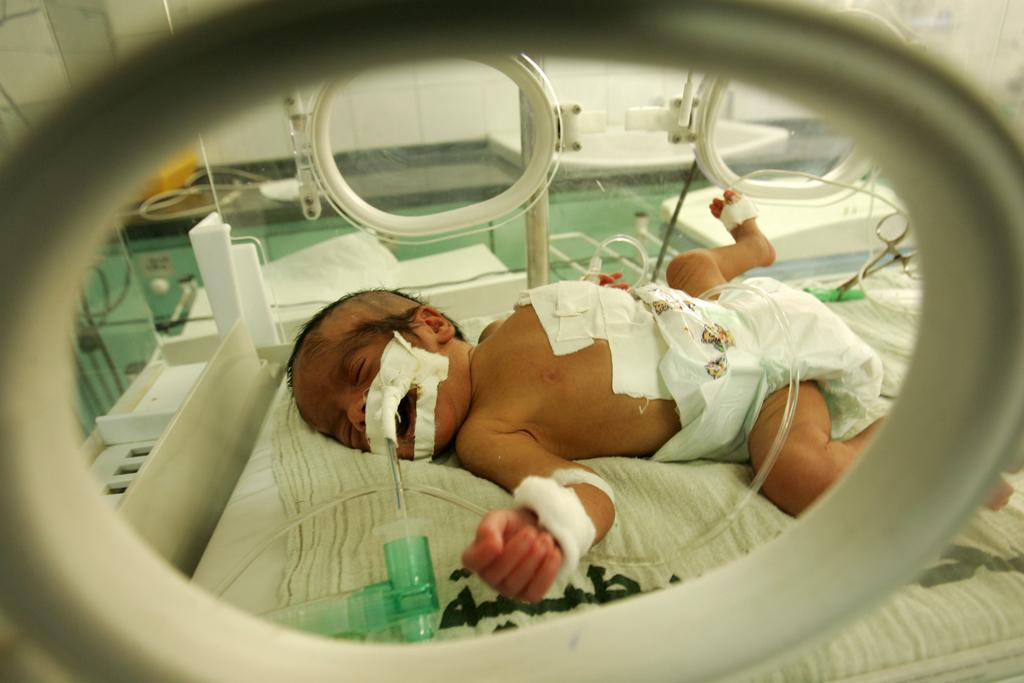WHO report: One in ten babies born prematurely
A premature newborn baby is cared for at the Neonatal unit at the Al-Shifa hospital in Gaza. Argentina’s “miracle baby” is in critical condition after surviving in a morgue fridge for 12 hours.
A global research project has found that 15 million of the 135 million babies born in 2010 were premature and 1.1 million died.
Reuters explains that 'The Born Too Soon' report, led by the World Health Organisation as part of the United Nations' Every Woman Every Child initiative, is the first ever country-by-country study of premature birth rates.
It says that the report took three years to compile and was written by experts from 11 countries.
More from GlobalPost: Unsafe abortions increase, particularly in Africa
India had the highest number of deaths due to premature births with 27 million, The Hindu reports, and ranked 36th of 199 countries for the highest number of pre-term births.
WHO defines pre-term as 37 weeks of completed gestation or less.
USA Today points out that more than 60% of preterm births are in sub-Saharan Africa and south Asia, but says some high-income countries, including the US, rank among the 10 countries with the highest number of preterm births.
According to the study, 12% of all American births are preterm and the newspaper says the trend is linked to "the number of older women having babies; increased use of fertility drugs, which increase the risk of multiple births; and increased rates of medically unnecessary Cesarean deliveries and inductions."
More from GlobalPost: Study: Birth control access boosts women's earnings
"It is very striking to see that preterm births have a similar burden all around the world – but due to different reasons," Dr Lale Say from the WHO is quoted as saying by the BBC. "In developing countries it is due to things like infections, HIV, malaria and poor nutrition . . . In developed countries there are totally different risk factors – an older delivery age, diabetes, obesity and multiple births due to IVF."
The report warns that prematurity is the leading cause of death worldwide after pneumonia and many premature babies go on to develop learning difficulties and problems with hearing and site, according to The International News.
More from GlobalPost: Shiva Rules: Sex selection in India is about more than gender discrimination
Every day, reporters and producers at The World are hard at work bringing you human-centered news from across the globe. But we can’t do it without you. We need your support to ensure we can continue this work for another year.
Make a gift today, and you’ll help us unlock a matching gift of $67,000!
